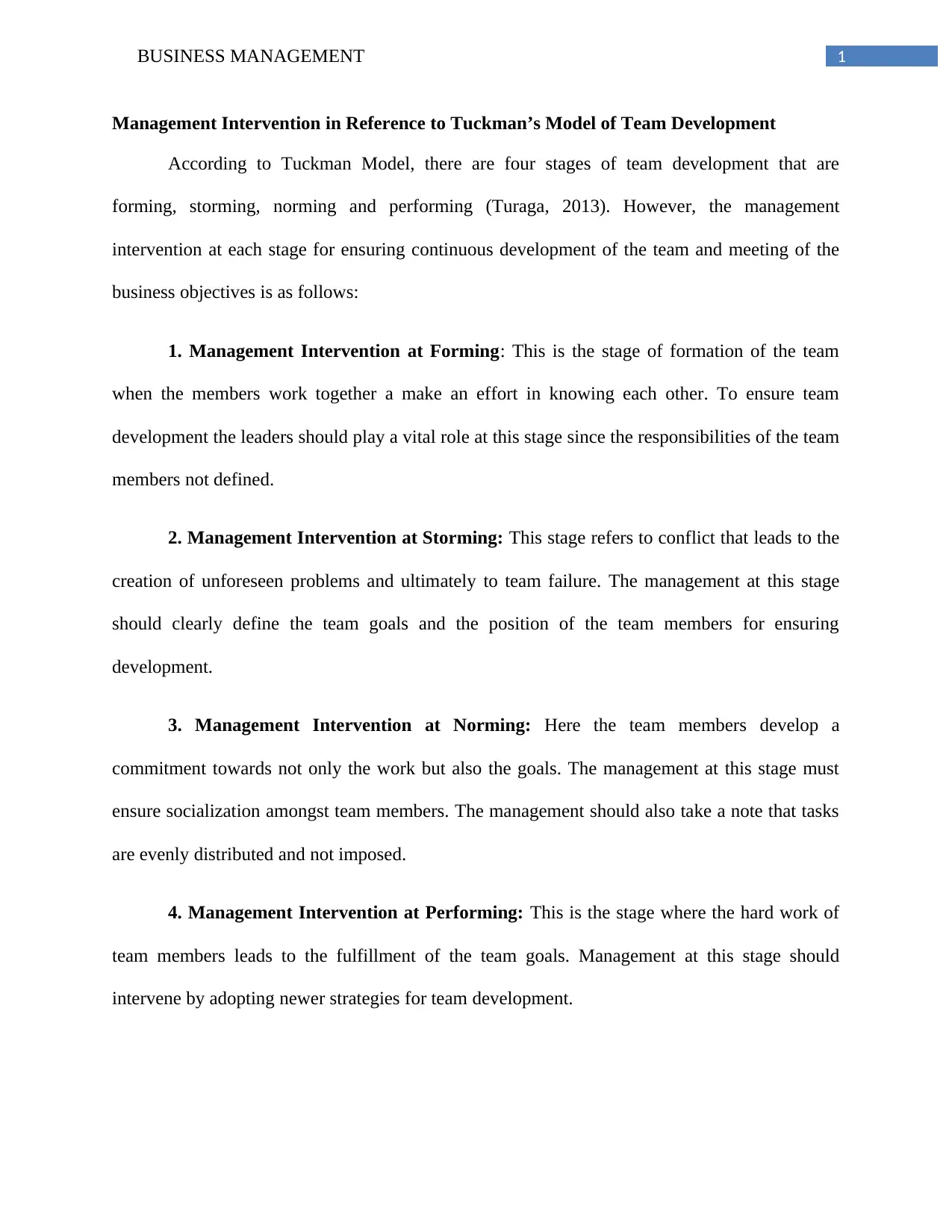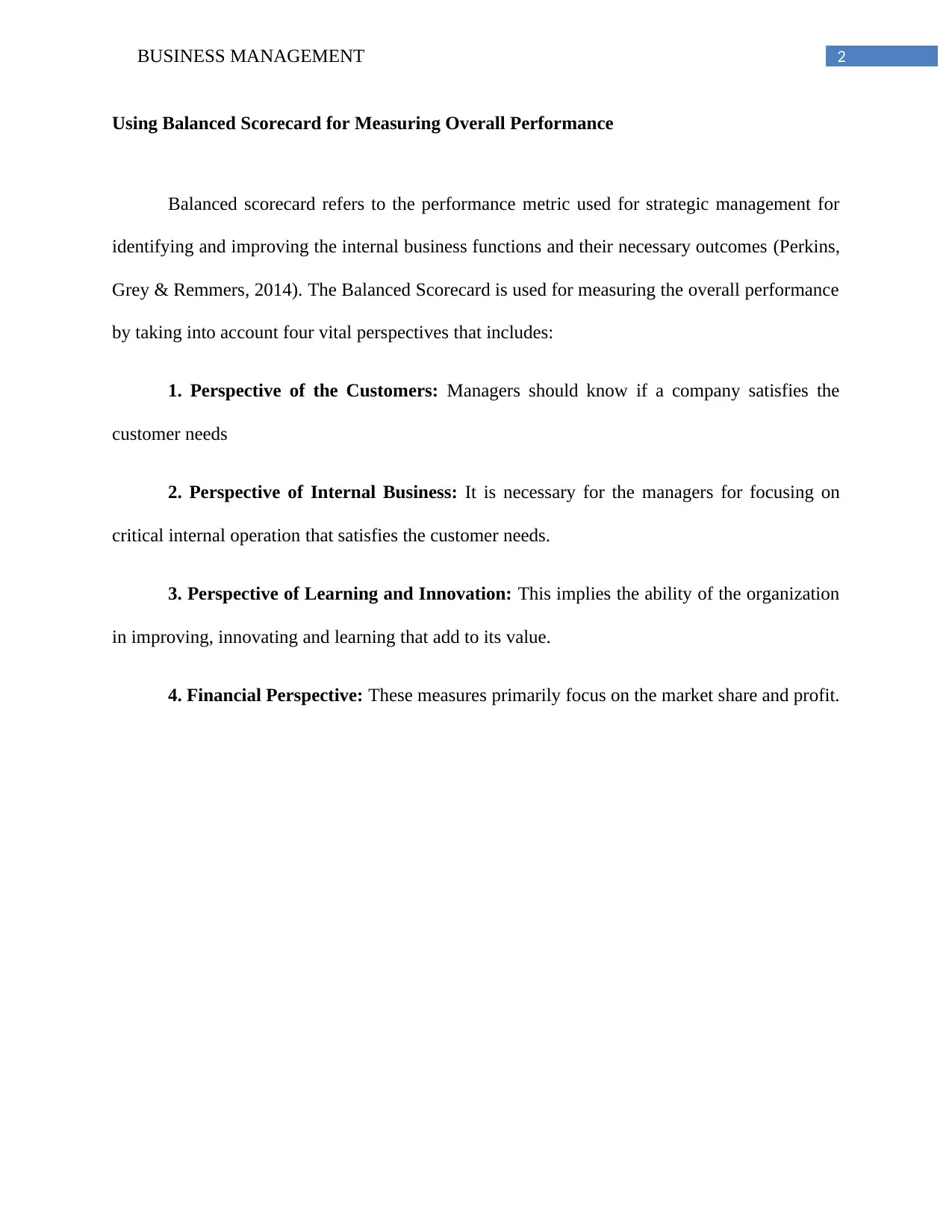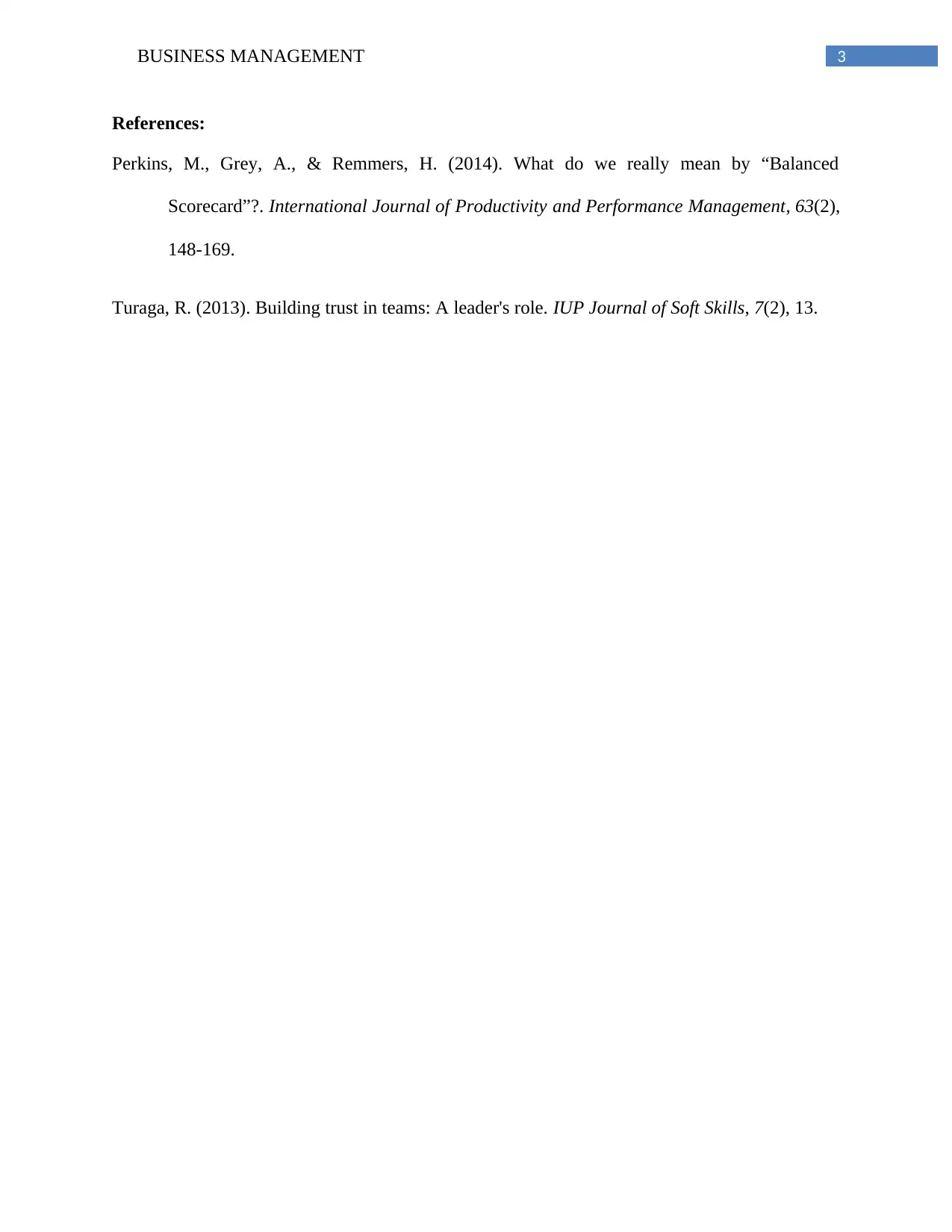Bow Valley College: Business Management Report on Team and Strategy
VerifiedAdded on 2023/06/10
|4
|508
|136
Report
AI Summary
This report addresses key aspects of business management, focusing on team development and performance measurement within the context of a real-world scenario. It begins by applying Tuckman's model of team development, outlining management interventions at each stage (forming, storming, norming, and performing) to ensure team progress and achievement of business objectives. The report then explores the use of the Balanced Scorecard as a performance metric, detailing its four perspectives: customer, internal business, learning and innovation, and financial. These perspectives are used to assess overall business performance and guide strategic decision-making. The report emphasizes the importance of leadership in fostering team cohesion, addressing conflicts, and implementing strategies to improve overall business outcomes. The provided content is a solution to an assignment from Bow Valley College, and it is designed to provide insights into effective management strategies for a struggling business.
1 out of 4










![[object Object]](/_next/static/media/star-bottom.7253800d.svg)